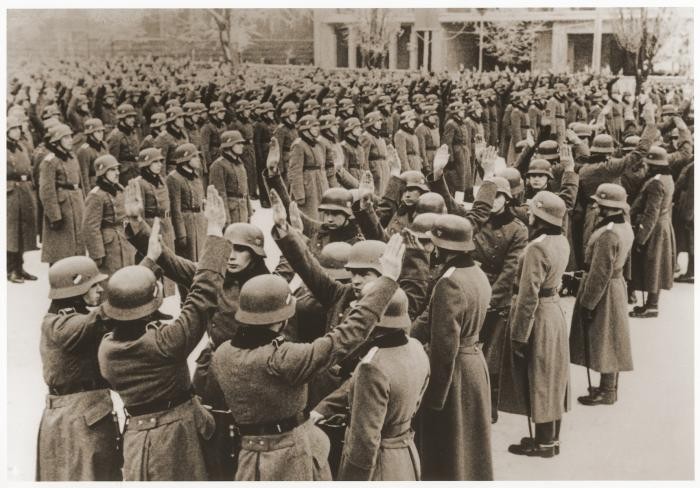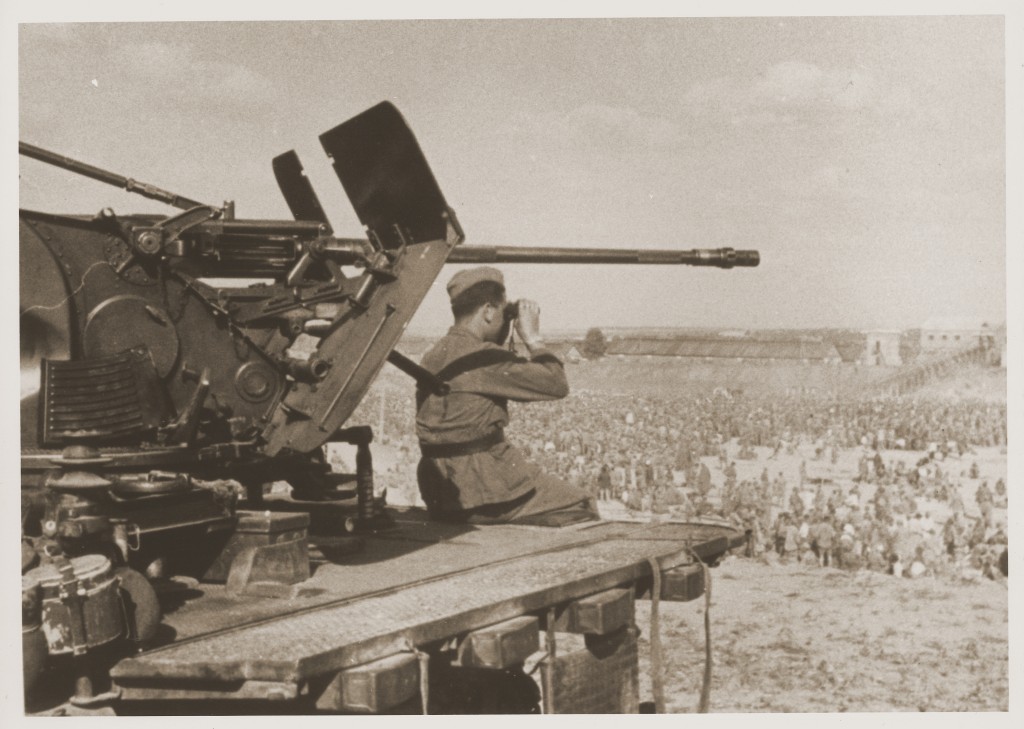
The Role of the Military
Persecution of Jews and other groups was not solely the result of measures originating with Hitler and other Nazi zealots. Nazi leaders required the active help or cooperation of professionals working in diverse fields who in many instances were not convinced Nazis. The military played a vital role in the consolidation of Nazi power and persecution and mass murder of Jews and other groups.
Military leaders in 1933 tended to see Adolf Hitler as a radical and upstart. Like other conservatives, they also believed that the former army lance corporal could be tamed to serve their own agenda. The military shared certain common political ground with the Nazis, including nationalism, anti-communism, and the desire to build up the military forces and re-establish Germany as a great world power. Reassurances that Hitler provided to military leaders about serving their interests secured their neutrality as Nazis used intimidation and force to repress political opposition and consolidate power. The military, like other public servants, swore an oath of unconditional obedience to the Führer. Its leaders welcomed the regime’s reinstatement of military conscription in 1935 in violation of terms of the Versailles Treaty.

The military also fell in line with the Nazi regime’s racism and racial laws. In 1935, leaders barred Jews from their ranks and dismissed those already serving. During the war, the German army increased in size and became more politically extreme. It reflected the pervasive propaganda and indoctrination that included the constant linkage of Jews to the threat of communist Bolshevism. Units of the German armed forces provided logistical support and sometimes participated in the killings of Jews, Roma, and others. The military benefited from the forced labor of Jews, and shares responsibility for the deaths of up to three million Soviet prisoners of war in their custody as the result of the intentional policy of harsh treatment and executions.
A few military officers were involved in failed efforts to assassinate Hitler, notably the attempt of July 20, 1944, a heroic effort motivated by the patriotic desire to save Germany from total catastrophe in continuing a losing war. It was not an attempt to halt or protest crimes against the Jews.
After the war, the myth emerged that the military was not involved in mass murder and genocide.
Critical Thinking Questions
Consider the role of the military. How might their oaths and traditional responsibilities be tested in times of social upheaval?
How were the military involved in preparing and carrying out the laws, orders, and policies which implemented the whole process? What lessons can be considered for contemporary professionals?
How can knowledge of the events in Germany and Europe before the Nazis came to power help citizens today respond to threats of genocide and mass atrocity?

